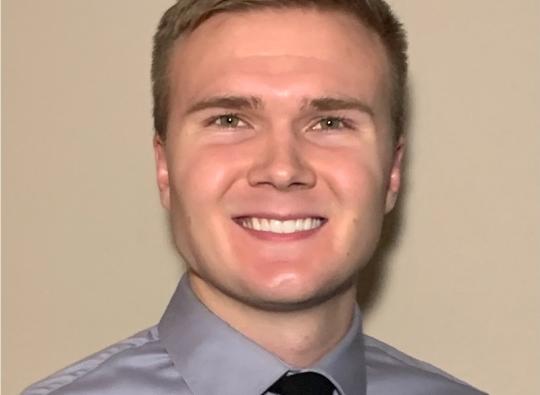Pre-Medicine Program
Pre-professional track
Pre-med program at Hamline
The human body is a complex and robust machine. Doctors strive to understand its systems and to help their patients maintain or restore their health. As a physician, you'll help individuals live their lives to the fullest and uplift your community as a whole.
Hamline's pre-medicine program prepares you for a career in medicine through one-on-one advising, healthcare-related internships, community engagement opportunities, and more. The U.S. Bureau of Labor Statistics projects that overall employment of physicians and surgeons will add an average of 22,700 jobs for physicians and surgeons every year over the next decade, and with our liberal arts education, you'll gain the skills you need to stand out in your field and succeed during your medical training.
Prerequisite coursework for M.D. and D.O. programs
Pre-medicine is not a major. Rather, it provides you a path that prepares you to apply to medical school. Pre-medical students may choose from any of Hamline’s major fields. While many pre-medical students declare a major in the natural sciences, individuals who combine the required pre-medical coursework with a major in another area (e.g., philosophy, religion, or psychology) have been equally successful in gaining admission into medical school.
Course requirements vary by medical school. Every pre-medical student is responsible for verifying admission requirements for all the schools to which they might be applying. According to the AAMC, the minimum prerequisite coursework for most medical schools in the U.S. includes two years of biology, one year of physics, one year of English, and two years of chemistry (through organic chemistry). Some courses, like biochemistry, psychology and sociology, might not be required for admission but are strongly recommended for optimal preparation for the MCAT exam.
It is important that students who want to follow the pre-med track enroll in CHEM 1130 during their first year at Hamline. Contact a pre-med advisor if you have questions about course selection and enrollment.
Applying to medical school
Ideally, students should complete the pre-medical core of studies by the end of their third year. In the third year, students take the Medical College Admission Test (MCAT). Also at that time, students begin the process of submitting required materials to the Hamline pre-medical committee for their medical school credential file. Students must select the schools to which they wish to apply, secure 4-5 letters of reference from faculty and others, and compose their personal statement, describing their genuine commitment to the medical profession. Success in gaining entrance to medical school is enhanced by several factors:
- A high cumulative grade point average
- A high MCAT score
- Indication of personal strengths, social skills, and communication skills
- Commitment toward a medical career (as evidenced by participation in medically related extracurricular and volunteer activities)
Credential file
Setting up a credential file will facilitate your application to medical schools. The two main purposes for credential files are:
- To gather information from you and from your letter of recommendation writers so that Hamline’s pre-health committee can complete a Pre-Medical Committee Summary Letter (not required, but needed by many schools)
- To submit your letter packet of recommendations to AMCAS, AACOMAS, or other schools of your choosing.
It is recommended that you attend a pre-medical information session at Hamline (held in spring and fall). Then, you should set up a credential file with the natural sciences division faculty assistant in Robbins 105 or through the pre-health director.
Please read the detailed credential file instructions below. Forms 1–5 are in Microsoft Word documents. Type in your information, save, and email the completed forms to the natural sciences faculty assistant or the pre-health program director. Questions can be directed to these individuals or your pre-health advisor.

In medicine, relationships are important, and the smaller class sizes here at Hamline made it easier for me to form meaningful relationships with my professors. These relationships were foundational to helping me not only get into med school but also succeed.
Application information
Contact information
-
Undergraduate Admission
-